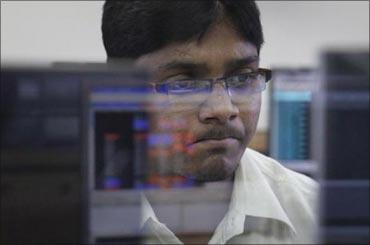 | « Back to article | Print this article |
Why the world needs true LEADERS to avert financial crises
The world economy is far too complex and needs to be looked at past the credit ratings and the debt crises to understand the true nature of the current crisis that has gripped the globe.
This crisis extends far beyond just the international financial crisis: it is more socio-political in nature.
Barring India and China, the entire Western world never came out of the 2008 recession and thus never got on to the growth path.
Central banks and governments will now need to look beyond interest rates and money supply to get out of this mess. Indeed, fundamental changes need to be done to the entire global financial system.
Click NEXT to read on . . .
Why the world needs true LEADERS to avert financial crises
Year 2008 was when institutions were failing, 2011 is the year when governments are failing!
In 2008, I was of the firm view that we should let a few corporates fail so that governments do not fail. The common thread is that in 2008, individuals were unhappy, and in 2011, individuals still remain unhappy.
Governments worldwide, it appears, have stopped doing their fundamental job, i.e. of governing. They have now got into the business of doing business. And, yet, growth over the years still finds millions languishing in poverty.
The year ahead will cause a lot of distrust for governments, since they seem to be acting more like private corporations while public servants are assuming the roles of executives of private corporations.
Click NEXT to read on . . .
Why the world needs true LEADERS to avert financial crises
The crisis in Europe and the short-sightedness with which it has been handled is enough to make people lose faith in governments across the world.
I expect a breakdown in the faith of the people. I see a rise in public anger in the coming years. It is only a matter of time before this public anger translates into social unrest and public action.
Going by the size of Indian and Chinese populations, I expect this public action to be the worst in these two countries.
When people lose faith in the corporations and the State, they can either resort to giving expression to their anger publicly, or they can withdraw. Under both these circumstances, the economy suffers.
Click NEXT to read on . . .
Why the world needs true LEADERS to avert financial crises
Given the two abovementioned scenarios, the only way to ensure some level of social stability is to have public friendly policies; policies that make the public feel freer.
People must be free to leave the country if they are not happy with their government. This way one ensures that public voice does not turn into mass revolution. Citizens who have left the country still continue to support the reforms that the government wants to bring about.
Policymakers the world over are now faced with erratic and uncontrollable financial systems. These systems have become so complex and convoluted that they undermine the authority of the governments and that is a serious cause for concern.
So much so that several nations today are riding on policies that no one understands.
Click NEXT to read on . . .
Why the world needs true LEADERS to avert financial crises
In the long run, there is a very high probability of countries getting into a protectionist mode, leading to political polarisation as social unrest across the world gains momentum.
Challenges for governments are rising: the way natural resources are being exploited, the complexity of the financial systems, the movement of information, et cetera. . . I am not sure how States are going to handle it.
While globalization has resulted in growth, it has also resulted in governments losing control over their own countrymen's welfare.
In the years to come, I suspect that nations will confront each other more openly than they have done in the past and this would result in extreme polarisation.
Click NEXT to read on . . .
Why the world needs true LEADERS to avert financial crises
Currency wars to compete with each other and wars to control natural resources and corporations may take an ugly turn.
After the current turmoil, global political leaders are under pressure to prove that they can control the debt monster from going berserk even more.
While they would do whatever it takes to reassure investors, the only way to reduce debt is by increasing efficiency. And consumption levels will need to go down even if it means lower growth.
However, having said that it would be difficult for countries to pull back from globalisation now and the need of the hour is to have true leaders who can look beyond their nations.
The author is a leading economist and financial expert. He is a director at the KASSA Group of Companies, a Delhi-based financial services organisation.





